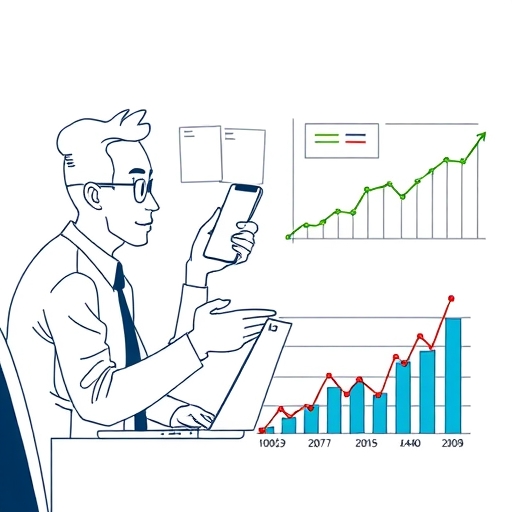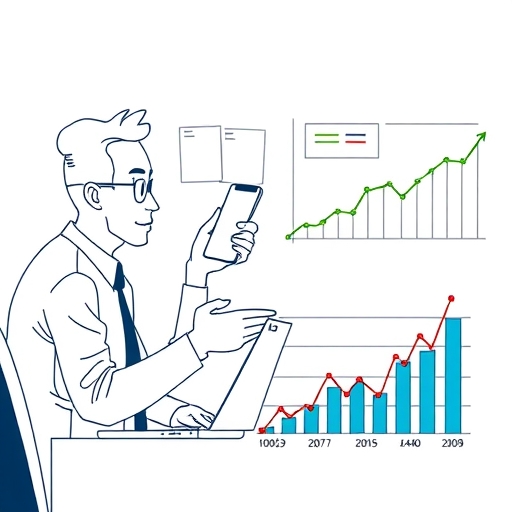Navigating the Complexities of Modern Markets: Your Guide to Morningstar’s Financial Insights
Welcome, aspiring investor, to a deep dive into the intricate world of financial markets. In an era defined by rapid shifts, nuanced economic indicators, and a constant flow of information, understanding where to turn for reliable insights is paramount. Here, we embark on a journey, drawing heavily from the valuable perspectives offered by Morningstar, a beacon for investors seeking clarity and data-driven understanding. While Morningstar provides an array of professional services and in-depth reports through subscriptions, its freely accessible news and market analysis sections offer a wealth of commentary and economic analysis, proving an invaluable starting point for your investment education. Are you ready to unravel the forces shaping your financial future?
Here are three essential areas for any aspiring investor to focus on:
- Understanding the current economic climate and its impact on investments.
- Identifying reliable sources of financial information, such as Morningstar.
- Developing a personal investment strategy based on comprehensive research.
Decoding the Stock Market’s Concentrated Rally: Is a Broadening Imminent?
Have you observed the persistent narrative surrounding the stock market’s recent ascent? It’s often described as a rally with ‘narrow leadership,’ where a handful of large-cap technology stocks have primarily driven the gains. This phenomenon, while impressive, raises critical questions for every investor: Is this concentration sustainable, or should we anticipate a broadening of the rally to include a wider array of sectors and companies? Morningstar’s market insights frequently highlight this dynamic, prompting investors to scrutinize their portfolios for appropriate positioning. They delve into whether mid-cap stocks, for instance, might be undervalued and poised for their moment in the sun, offering a compelling counterpoint to the prevailing focus on megacap tech.
We also need to temper our expectations with a healthy dose of realism. Morningstar analysis suggests that investor return expectations, particularly among newer participants, can often be overly optimistic. This isn’t to dampen enthusiasm, but rather to foster a grounded approach to investing. Understanding the historical context of market returns and the current valuation landscape is crucial. Are you calibrating your long-term return goals based on solid analysis, or are you swept up in the euphoria of recent gains? Thoughtful consideration of these factors will serve as a foundational pillar for your investment success.

The following table summarizes key indicators of market performance:
| Indicator | Description |
|---|---|
| Market Capitalization | Total value of a company’s outstanding shares, signaling size and influence in the market. |
| P/E Ratio | Price-to-earnings ratio indicates the relative value of a company based on its earnings. |
| Dividend Yield | Financial ratio that shows how much a company pays in dividends each year relative to its stock price. |
The Fed’s Stance and the Shadow of Tariffs: Unpacking Macroeconomic Influences
The Federal Reserve, or ‘the Fed,’ stands as a pivotal entity in the global financial ecosystem, and its decisions on interest rates ripple through every asset class. As we approach critical economic announcements, such as the Consumer Price Index (CPI) report, the market keenly anticipates the Fed’s next move. Morningstar’s economic forecasts widely predict a pause in interest rate hikes through July, suggesting a period of watchful waiting as policymakers assess the cumulative impact of past tightening. However, this period of calm may be deceptive, as another significant macroeconomic factor looms large: tariffs.
The discussion around tariffs often brings with it a sense of uncertainty. How do these trade barriers, implemented by governments, truly impact corporate earnings? Morningstar’s detailed analysis indicates that Q2 earnings season will be a crucial test, with particular attention paid to how tariffs might squeeze corporate margins and ultimately lead to lower profits or increased prices for consumers. Furthermore, the US dollar has experienced its worst first-half performance in decades, a trend that could have profound implications for global trade flows, import costs, and the attractiveness of US assets to international investors. How are you positioning your portfolio to navigate these complex macroeconomic currents?

Globalization in Retreat? Reshaping Portfolio Strategies for a New Era
For decades, globalization was the undisputed trend, intertwining economies and supply chains across continents. However, recent geopolitical shifts and protectionist policies have introduced pressures that suggest a potential ‘de-globalization.’ Morningstar’s research indicates that these forces are making global equity markets “less global,” meaning that corporate revenues are becoming more domestically focused rather than internationally diversified. This trend demands a re-evaluation of our investment strategies.
Consider the classic 60/40 portfolio – a traditional blend of 60% stocks and 40% bonds. Does this time-tested allocation still hold up under the pressures of a less globalized, more fragmented world? Morningstar’s historical analyses demonstrate its surprising resilience, even under significant market stress. Yet, for forward-looking investors, the importance of global diversification remains paramount. Identifying sectors and industries vulnerable to reciprocal tariffs becomes crucial, as does exploring strategies to mitigate these risks. This might involve looking beyond conventional assets. For example, some investors seek opportunities in commodities or currency markets to diversify. If you’re considering expanding your portfolio to include such avenues, especially currency trading or Contract for Differences (CFDs), then Moneta Markets is a platform worth exploring. Originating from Australia, it offers over 1000 financial instruments, catering to both novices and seasoned traders.
Furthermore, Morningstar highlights specific investment avenues. They’ve discussed Vanguard’s cautious approach to private markets due to their complexity, preferring to prioritize cash flow for ventures like crypto ETFs. For income-seeking investors, strategies to increase income from dividend stocks are frequently explored. And for those concerned about inflation, the inflation-fighting power of TIPS bonds (Treasury Inflation-Protected Securities) and their corresponding ETFs are often recommended. Are you actively seeking new opportunities and mitigating risks amidst these evolving global dynamics?
The following table provides insight into some of the investment strategies highlighted by Morningstar:
| Investment Strategy | Key Benefits |
|---|---|
| Vanguard’s Caution | Prioritizing cash flow for a stable investment without excessive risk. |
| Dividend Stocks | Potential to provide a regular income stream in uncertain markets. |
| TIPS Bonds | Inflation protection to preserve purchasing power over time. |
Beyond the Headlines: Corporate Innovation and Sector-Specific Shifts
The corporate landscape is a vibrant tapestry woven with threads of innovation, strategic partnerships, and relentless competition. Staying attuned to these developments is crucial for identifying emerging opportunities and understanding the shifts within industries. Morningstar’s corporate news coverage highlights a diverse array of advancements across various sectors.
In the realm of technology, we see the proliferation of advanced tools. Prosci’s launch of a new change management generative AI tool signals the increasing integration of artificial intelligence into business operations, streamlining processes and enhancing efficiency. Similarly, the development of a compact odor imaging sensor chip by Aroma Bit, utilizing CMOS semiconductor technology, points to breakthroughs in sensory technology with potential applications across numerous industries, from healthcare to consumer goods. These are not just abstract innovations; they represent tangible shifts that can redefine market leadership and create entirely new economic ecosystems.
Strategic collaborations are also a recurring theme. The partnership between TOPIKOS Spirit & Beverage Co. and Constellation Brands Inc. exemplifies how established players and nimble newcomers can join forces to expand market reach and product offerings. Meanwhile, in the critical infrastructure sector, Hewlett Packard Enterprise (HPE) and Danfoss’s collaboration to improve data center energy efficiency and heat reuse addresses pressing environmental and operational challenges. These developments underscore that in today’s market, growth often stems not just from internal innovation but also from synergistic alliances. How do these corporate movements influence your perception of sector stability and growth potential?
The Human Equation: Generational Divides and Behavioral Finance in Investing
Investing isn’t merely about numbers and charts; it’s profoundly influenced by human behavior, perceptions, and generational attitudes. Morningstar delves into these often-overlooked aspects, revealing fascinating insights into how different demographics approach their financial lives. For instance, data indicates that Generation Z shows the highest participation in high-deductible health plans, a choice that reflects their financial priorities and risk tolerance. More strikingly, Gen Z is significantly less likely than older generations, like Boomers, to seek financial advice from professionals. This divergence in behavior presents both challenges and opportunities for financial educators and service providers.
Furthermore, the persistent force of inflation is not just an economic statistic; it’s widening the economic perception gap between the wealthy and others. This creates distinct financial dilemmas for individuals, from managing inheritances to tackling high-interest debt, such as mortgages or credit-card debt. The emotional and interpersonal aspects of money also surface in discussions around financial disputes within families. Understanding these behavioral patterns – the psychological biases, the generational nuances, and the emotional responses to economic pressures – is key to developing resilient financial strategies. What biases might be unconsciously influencing your own financial decisions?
Healthcare’s Evolution: From Value-Based Care to Regulatory Challenges
The healthcare industry, a perpetual focus of innovation and policy debate, is undergoing significant transformation. Morningstar’s coverage brings to light key shifts, particularly the move towards value-based care. Collaborations such as that between athenahealth and Cardiovascular Associates of America illustrate how technology providers and independent healthcare networks are working together to empower providers to deliver better outcomes at lower costs. This shift from fee-for-service to value-based models has profound implications for healthcare providers’ operational structures and revenue streams.
However, progress often comes with challenges. Proposed regulatory changes, like the Medicare Local Coverage Determinations (LCDs) related to Chronic Non-Healing Wounds (CAMPs LCDs), can stir considerable debate. Wound care experts have raised concerns that such changes might adversely impact patient care, highlighting the delicate balance between cost containment, quality of care, and access to necessary treatments. Understanding these industry-specific regulatory landscapes is crucial for investors in the healthcare sector. Are you monitoring the regulatory environment as closely as you are balance sheets in the healthcare companies you follow?
Sustainability and Emerging Trends: Corporate Responsibility and New Market Frontiers
Beyond the immediate financial statements, a company’s commitment to sustainability and its engagement with emerging trends are increasingly vital indicators for long-term value. Morningstar frequently spotlights initiatives that reflect this evolving corporate responsibility. For example, the pilot program for regenerative agriculture launched by major players like Ahold Delhaize USA, Kellanova, and Bartlett signals a growing corporate focus on reducing emissions across their supply chains. Such initiatives are not just about environmental stewardship; they often lead to operational efficiencies, enhanced brand reputation, and better risk management in the face of climate change. This trend reflects a broader shift towards ESG (Environmental, Social, and Governance) considerations becoming integral to investment analysis.
Moreover, innovation continues to unfold in unexpected areas. The development of an AI-enabled virtual companion for seniors, such as Grandie, showcases how technology is addressing societal needs and creating new market frontiers. Likewise, JPMorgan Chase’s efforts to expand homeownership and wealth building by addressing complex issues like heirs property and appraisal reform demonstrate a commitment to broader community impact. These are not merely altruistic endeavors; they contribute to the stability of communities and the expansion of economic opportunity, which can have positive long-term effects on the broader economy. How do you factor a company’s sustainability initiatives and societal impact into your investment thesis?
Morningstar’s Blueprint for Transparency: Unbiased Insights for Investor Empowerment
In the vast sea of financial information, finding an anchor of independence and credibility is paramount. Morningstar stands out with its unwavering commitment to editorial integrity, a cornerstone of its mission to empower investor success. They are transparent about their business model, which generates revenue through license agreements for their data and software, subscriptions to their premium research, asset-based fees from their investment management services, conference packages, and advertising. This multi-faceted revenue stream underpins their ability to provide comprehensive insights.
Crucially, Morningstar maintains a strict separation between its sales teams and its analytical and editorial processes. This ensures that their research and reporting remain independent and unbiased, a critical factor for trustworthiness. They are committed to fair and accurate reporting, diligently distinguishing facts from opinions, and adhering to robust data privacy practices. This foundational commitment means that when you access their market news or financial analysis, you can trust that it is driven by a genuine pursuit of insight, not external influence. Why is this level of transparency and independence so vital for your investment decisions?
Leveraging Professional Wisdom: The Role of Financial Advice in Your Journey
As we’ve explored, the journey through financial markets is complex, often influenced by macroeconomic shifts, corporate innovation, and deeply human behaviors. While platforms like Morningstar provide invaluable insights, the role of professional financial advice cannot be overstated, especially for newer investors navigating this intricate landscape. We noted that Generation Z is less likely to seek professional guidance, a trend that may inadvertently expose them to greater risks or missed opportunities. Understanding the dynamics of your personal financial situation, your risk tolerance, and your long-term goals requires a personalized approach that generalized market insights, however brilliant, cannot fully provide.
A qualified financial advisor can help you translate broad market trends into actionable strategies tailored specifically for you. They can assist in constructing a truly diversified portfolio, understanding the implications of different asset classes, and making informed decisions about complex products. This guidance is especially valuable when considering nuanced investment opportunities. For instance, if you are looking to explore global trading options, including complex instruments like CFDs or foreign exchange (forex) trading, having access to a platform that combines a wide range of products with robust support is essential. In this regard, Moneta Markets provides flexibility and technological advantages worth noting. It supports mainstream platforms like MT4, MT5, and Pro Trader, offering high-speed execution and low spread settings for a seamless trading experience. This combination of insightful market analysis and professional guidance can truly empower your investment journey.
Actionable Strategies for the Informed Investor: Consolidating Your Learnings
Having traversed the varied terrains of market concentration, macroeconomic pressures, generational financial behaviors, and corporate innovation, what actionable strategies can you distill from these insights? Firstly, remain vigilant about market breadth. While the current rally might be narrow, be prepared for potential shifts and consider diversifying beyond a few dominant stocks. Secondly, stay attuned to central bank policies and global trade dynamics; these factors will continue to dictate economic direction and corporate profitability. Thirdly, acknowledge the human element in finance. Understanding your own biases and those of the broader market can protect you from emotional decision-making.
Embrace diversification, not just across asset classes but also globally, to hedge against regional downturns and capture opportunities worldwide. Consider the resilience of established strategies like the 60/40 portfolio, while also exploring specific, inflation-fighting assets like TIPS bonds for protection. Lastly, and perhaps most importantly, leverage the wealth of information available from reputable sources like Morningstar. Their commitment to unbiased, experience-driven analysis provides a solid foundation for your investment decisions. Your continuous learning and adaptability will be your greatest assets in the ever-evolving market.
Conclusion: Your Path to Informed Investing Starts Here
The financial world is an ever-moving target, demanding continuous learning and adaptation. The insights provided by Morningstar, freely available through their news and market commentary sections, underscore a complex yet opportunity-rich environment. From navigating the subtleties of market concentration and anticipating the macroeconomic ripple effects of interest rates and tariffs, to understanding the distinct financial behaviors across generations and appreciating the relentless pace of corporate innovation, a well-informed investment strategy is paramount.
We’ve emphasized the critical role of independent analysis and data-driven perspectives. Morningstar’s unwavering commitment to unbiased research and fair reporting serves as a vital resource for you, the investor, seeking to make sense of these multifaceted trends and achieve long-term success. As you continue your investment journey, remember that knowledge is your most powerful tool. Stay curious, stay informed, and let clarity guide your path to prosperity. What will be your next step in becoming a more empowered investor?
morningstar reports freeFAQ
Q:What are the benefits of using Morningstar for investment insights?
A:Morningstar provides reliable, data-driven analysis and commentary, which can help investors make informed decisions.
Q:How can I determine if my portfolio is well diversified?
A:Review the asset distribution, and sectors represented, and consider exposure to international markets to ensure balanced risk.
Q:What should I consider before seeking professional financial advice?
A:Understand your financial goals, risk tolerance, and the complexity of products before approaching a financial advisor for tailored advice.

留言